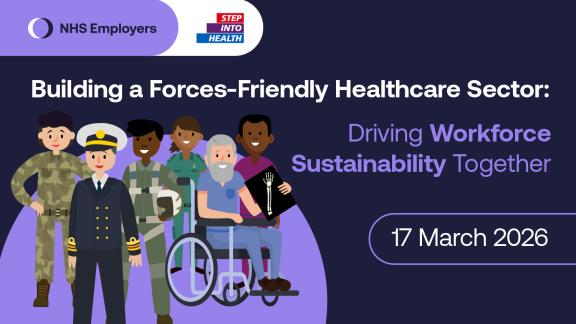Joint NHS Employers and NHS Confederation response to the workforce plan call for evidence

NHS Employers and the NHS Confederation worked with senior managers across the NHS to provide a joint response to the workforce plan consultation to represent their views and make a number of asks.
The Department of Health and Social Care (DHSC) opened their consultation on the workforce plan to support the 10 Year Health Plan on 26 September 2025. The plan reinvents the healthcare model with three main shifts from:
- hospital to community
- analogue to digital
- sickness to prevention.
It also made clear the governments ambition to drive healthcare reform which included:
- data to deliver impact
- artificial intelligence (AI) to drive patient power, a step change improvement in quality of care and enhanced productivity
- genomics and predictive analytics for pre-emptive, personalised care
- wearables to make care real-time
- robotics to support precision.
The consultation asked for a number of questions to be answered in four sections. Below is a summary of our key asks:
1. Working in a digital first service
- Further support to introduce digital and AI initiatives and having budgets that allows for investment and growth in this area which will provide returns over a longer period would be beneficial for NHS trusts.
2. Having the right skills in the right places
- The importance of apprenticeships at all levels in both clinical and non-clinical roles to attract individuals into the NHS and to ensure they stay by having apprenticeship opportunities along career pathways. Also to ensure that individuals have the opportunity to earn and learn in some of the small and vulnerable professions to keep them a viable option in the future.
- Support to create new roles such as in mental health, which will enhance a preventative approach and serve the local community. These new roles should have a clear development pathway whether that be apprenticeship standards or flexible modular based learning.
- Having a flexible educator workforce within education institutions and NHS organisations which provides opportunities to move between organisations and keep up to date. The ability to offer a range of diverse clinical placements for learners without overburdening specific professionals or organisations is paramount.
3. Building a workforce fit for the future
- Having a balance of using AI to undertake certain duties within roles whilst still offering entry level roles to provide opportunities for the local community to take up a career in the NHS.
- Offering new ways of multi-professional working to provide care in the local community or nearer to home to enhance patient care. Which also provides different career progression and job satisfaction for those in the workforce.
- Entry-level pay must be reviewed to maintain competitiveness against rising statutory minimums and private sector alternatives, particularly in healthcare roles with high physical and emotional demands.
- Graduate entrants need structured progression, especially at band 5, where slow earnings growth and limited promotion incentives risk deterring new professionals from staying in the NHS long term. Graduate roles also need to remain attractive to prospective employees.
- Promotion incentives for Agenda for Change staff must be rebalanced, as narrow pay gaps between bands reduce the financial appeal of taking on more responsibility, undermining motivation and career development. In addition, different pay awards made by different pay bodies can lead to further disagreements and potential strike action. Therefore, greater coordination between the pay review bodies is essential to improve the understanding of the rationale behind any decisions to apply differential pay awards between staff groups.
4. Creating a new culture
- The Introduction of the staff standards will ensure that staff experience is a priority within NHS organisations.
- Reducing the amount of occurrences of discrimination, sexual abuse and violence in the NHS from both staff and patients.
- Having an immigration policy which encourages our international colleagues to flourish and stay in the UK.
Along with our main points and asks, we provided a range of innovative examples with data from NHS organisations who are already delivering to support the three shifts.
See the full call for evidence on the GOV.UK website.
If your organisation is delivering work in this area which is seeing significant impacts and you would like to share with others, please do email us and our team will be in touch.



